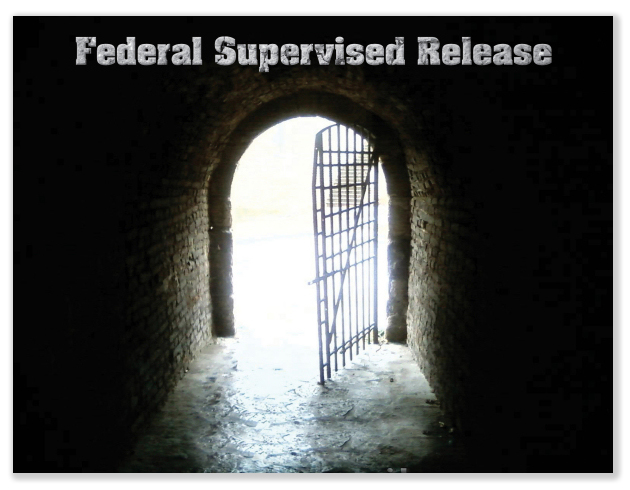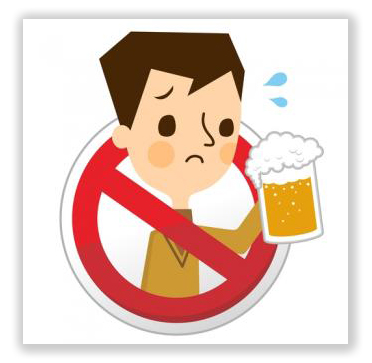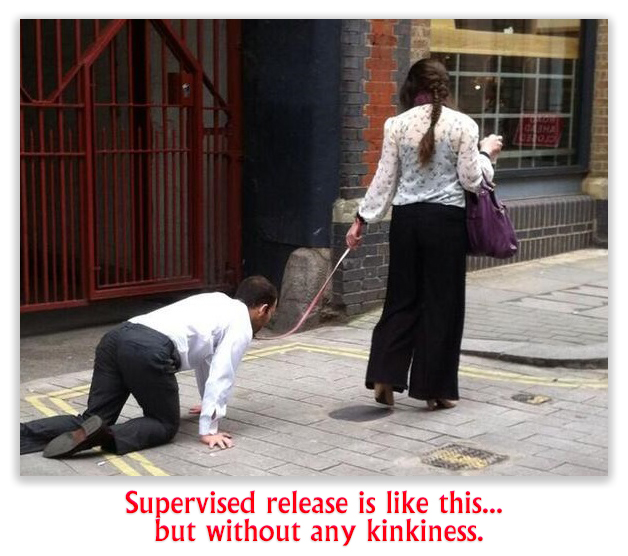We post news and comment on federal criminal justice issues, focused primarily on trial and post-conviction matters, legislative initiatives, and sentencing issues.

FUN AND GAMES WITH SUPERVISED RELEASE
A pair of decisions last week serve as a reminder to federal inmates that if they think prison is frustrating, just wait…
 More than one inmate lived in one federal district, but caught his or her case in another. That happened to Randy Pittman. When that happens, the BOP will release the inmate to the federal district in which the crime was committed, not the one in which the inmate lives, unless the inmate convinces the BOP to ask for a transfer of supervision.
More than one inmate lived in one federal district, but caught his or her case in another. That happened to Randy Pittman. When that happens, the BOP will release the inmate to the federal district in which the crime was committed, not the one in which the inmate lives, unless the inmate convinces the BOP to ask for a transfer of supervision.
With Randy’s prison term set to expire, he asked the district court to grant relocation of his supervised release under 18 USC 3605. There’s nothing unusual about such a request, and Randy justifiably saw no benefit to doing halfway house in Texas when he intended to live with his family in Georgia.
The district court denied his motion as premature because Randy was not yet on supervised release. Randy appealed, but last week the 5th Circuit threw the case out, holding it lacked jurisdiction.
The Circuit held that the district court’s denial of supervised release relocation as being premature was not a final order under 28 USC 1291. Randy argued that the harm he would suffer was real, because forcing him to enter a halfway house in the Texas would undermine his ability “to reintegrate into society.” After all, the halfway house was supposed to let him attain a stable residence, gainful employment, and to prepare for his reentry into society.”
The Circuit did not care. The district court said Randy’s motion was premature. “The best view is that,” the 5th said, is that “the denial of Pittman’s motion is simply not a final, appealable order.”
Of course, it seems that Randy’s harm was immediate, that being a term of halfway house in a place where getting a job, renting an apartment, opening a bank account and getting a current driver’s license made no sense. And it hardly served society either, telling a soon-to-be-released prisoner that he should engage in entirely futile attempts to reintegrate into a society 700 miles from his family. By the time Randy is on supervised release, the damage – an utterly stupid halfway house placement – would be done. The primary question of ripeness is whether the harm asserted has matured sufficiently to warrant judicial intervention. That should have made the issue here, even if it is a collateral order, reviewable.
 For David Bell, who was on supervised release, the problem was that the district court has placed special conditions on him that he ““not consume or possess alcoholic beverages or beer, including 3.2% beer, at any time” and that he be at his “place of residence between the hours of 10:00 p.m. and 6:00 a.m., 7 days per week,” unless working.
For David Bell, who was on supervised release, the problem was that the district court has placed special conditions on him that he ““not consume or possess alcoholic beverages or beer, including 3.2% beer, at any time” and that he be at his “place of residence between the hours of 10:00 p.m. and 6:00 a.m., 7 days per week,” unless working.
Dave argued that these had nothing to do with his conviction for marijuana trafficking and money laundering, but the district court said
I’ve had too many defendants that go out and get to drinking, then they get intoxicated and then they go out and violate their supervised release.” As for the curfew, the court said, “And the same reason I put that curfew on there… [T]hey violate their probation, they’re out usually past midnight. They’re out on the prowl, and they get into trouble. They get drinking, then they’re out prowling the streets. Now, there’s no indication you do that. But I’m going to leave it on there because I’m not even going to give you the chance to be tempted by it.
Dave appealed, and last week, the 8th Circuit threw out the conditions. Supervised release conditions must 1 be reasonably related to the sentencing factors set forth in 18 USC 3553(a), involve no greater deprivation of liberty than is reasonably necessary for the purposes set forth in 3553(a); and be consistent with policy statements issued by the Sentencing Commission. What’s more, the sentencing court “must make an individualized inquiry into the facts and circumstances underlying a case and make sufficient findings on the record so as to ensure that the special condition satisfies the statutory requirements.”
The 8th Circuit noted it had previously vacated alcohol bans “where the defendant’s history or crime of conviction” did not support them. Drug convictions alone do not justify such restrictions, and “even repeated marijuana use and light alcohol consumption are not necessarily sufficient to establish dependency.”
 Here, the Court ruled, the sentencing judge abused his discretion in imposing the condition prohibiting Dave from any alcohol consumption. “Rather than conducting an individualized inquiry into the circumstances of Bell’s alcohol use and drug dependence,” the appellate panel held, “the district court cited its general experience with prior offenders. In fact, the court admitted that there was no indication that Dave drank or prowled the streets.”
Here, the Court ruled, the sentencing judge abused his discretion in imposing the condition prohibiting Dave from any alcohol consumption. “Rather than conducting an individualized inquiry into the circumstances of Bell’s alcohol use and drug dependence,” the appellate panel held, “the district court cited its general experience with prior offenders. In fact, the court admitted that there was no indication that Dave drank or prowled the streets.”
As well, the sentencing court abused its discretion in imposing a curfew. Rather than making individualized findings, the court referenced its general experience with offenders and admitted that there was “no indication” this experience pertained to Dave.
The 8th did not “see a reasonable probability that the court would have imposed the condition after an individualized assessment… It is unclear how the curfew is reasonably related to the protection of the public or Bell’s criminal history and rehabilitative and correctional needs given that the conspiracy involved distributing marijuana through the mail and laundering the proceeds.”
United States v. Pittman, 2019 U.S. App. LEXIS 4490 (5th Cir. Feb. 14, 2019)
United States v. Bell, 2019 U.S. App. LEXIS 4155 (8th Cir. Feb. 12, 2019)
– Thomas L. Root

